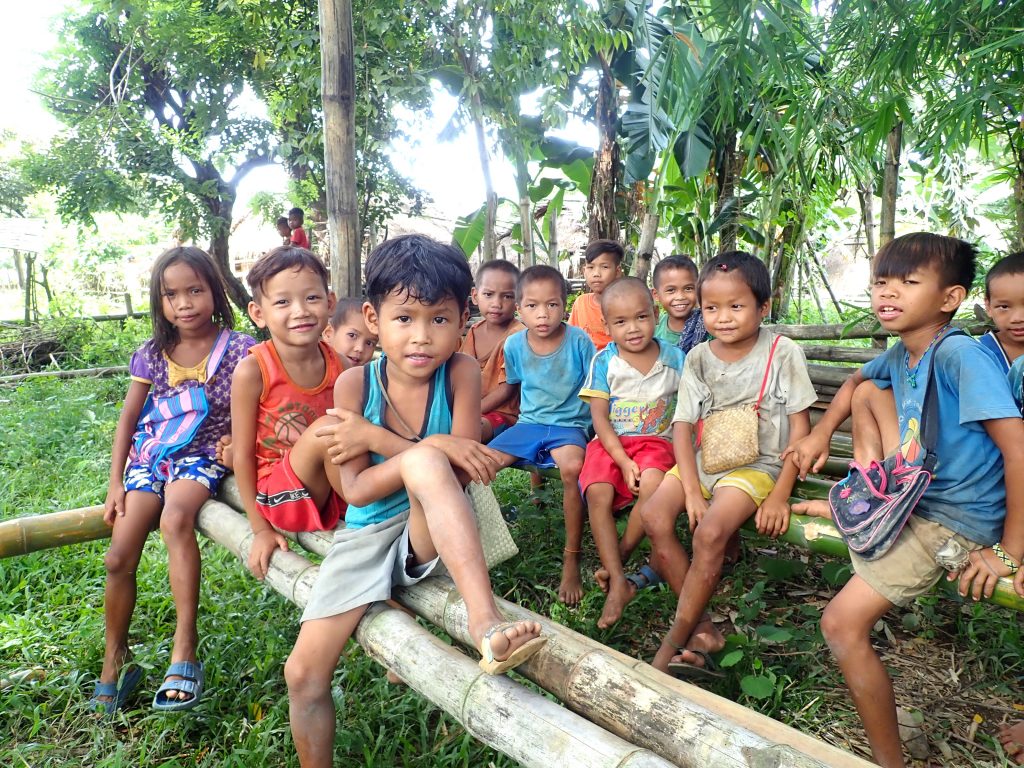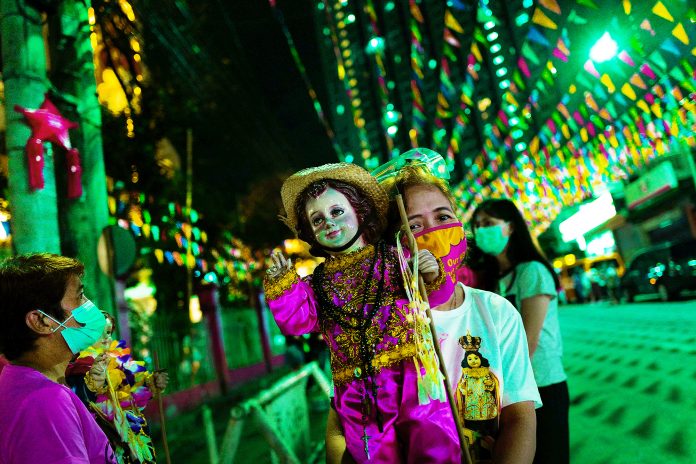Once I was in a conversation with a family about a tragic event that had happened in their neighborhood. This was in one of my former parishes and I had just visited the family of one of the four children that had drowned in an abandoned quarry area, to bless their dead five-year-old son.
I gathered from the conversation with the neighbors that the abandoned quarry area had become a pool of clear water during the rainy season and that it attracted the kids to wade in, not realizing that the water was very deep.
Apparently, the boys had started out in a shallow part of the pond and then suddenly got alarmed when they found themselves in the deep part. Unfortunately, most of them did not know how to swim.
In the middle of our conversation, a smart little boy who was about the same age as the victims came forward and started volunteering some details about the tragedy. He said he had personally witnessed what had happened and, since he was listening to the conversation and probably felt that his father’s narration of the story was not very accurate, he interrupted and spoke up.
What followed next shocked me and rendered me speechless. The father slapped the little boy in front of me and angrily said, “Didn’t I tell you never to interrupt when adults are in a conversation?”
The father looked up at me and even apologized for his son’s behavior while his son cried out of embarrassment. I felt very awkward so I stood up to have myself excused. But I took the father aside and told him that what he did was wrong, and if he could please console his son. I was glad he did.
You see, sometimes adults are not always right. Sometimes they also have to learn to apologize to their children.
On this feast day of the Santo Niño, our reading is about Jesus calling his disciples’ attention on how adults should deal with children. He reprimanded them for driving away the kids and preventing them from participating in their session. He said, “Let the children come to me; do not prevent them…” And then he said something they never forgot, “The Kingdom of God belongs to such as these.”
Have we ever considered how children tend to be left out in most of our Church activities? I once heard from the Couples for Christ that it took them a while before they realized that the kids felt left out from their parents’ activities and resolved to also have Kids for Christ, Youths for Christ, etc.
I do not think Jesus was denying the fact that children have a lot of growing up to do and that they need the adults to mentor them. But sometimes, at the guise of disciplining or teaching children a lesson, we don’t realize that we might in fact be hindering their growth.
That is bound to happen especially when our own growth into adulthood has been hindered by certain circumstances, like forms of physical or verbal abuse that may have traumatized us or certain attitudes that we may have picked up from dysfunctional adults.

You see, not all people who have GROWN OLD have really GROWN UP. Even in Tagalog we have the expression “TUMANDANG PAURONG,” which applies to people who have regressed and not progressed with age. They have grown old but have not really grown up, and so they cannot facilitate the growth of others either. Instead, they become a hindrance to growth and can become very hazardous or even toxic, especially when entrusted with authority.
Remember what Jesus said about the Scribes and Pharisees in Matthew 23: “They tie up heavy burdens [hard to carry] and lay them on people’s shoulders, but they will not lift a finger to move them…. All their works are performed in order to be seen…. They love to be positioned in places of honor… and expect to be greeted in marketplaces, and addressed properly as ‘Rabbi.”
Meaning, they have grown old but have never grown up. That is why they tended to be very discriminatory towards people who did not meet up to their standards.
This was one of the most significant aspects in which Jesus differed from the Pharisees. And I’d say he was way ahead of his time in this regard. He went consciously against the culture of discrimination and he knew how to rub it in whenever necessary in order to drive home his point, especially when it had to do with the exclusion of certain people on the basis of illness, like leprosy, or on the basis of their disabilities, like the blind, the deaf mutes and the lame, or on the basis of their means of livelihood, like tax collectors and prostitutes, or on the basis of their sex, like women, or their age, like children.
His basic message was, “we are all equal in dignity.”
At the Feast of the Baptism of the Lord, I remember giving you an assignment, which was to read two biblical passages that could help you understand why John the Baptist had chosen the river Jordan as venue for his ritual of immersion for prospective members of his prophetic movement.
I referred you, first to Joshua 3, which is about Israel’s crossing of the Jordan before the birthing of their nationhood upon their entry into promised land. Second, I referred you to 2 Kings 5, the story of the Syrian commander who had leprosy, and who sought to be prayed over and healed by Elisha. How he was instead told by the prophet to simply immerse himself in the water of the Jordan river seven times.
I called your attention to that funny scene where the Syrian commander almost walked out because he felt he was not given importance by the prophet despite his endorsement letter from the king and the precious gifts that he offered as material reward. He was behaving like a brat. And who was it that corrected his bad attitude? A child. Meaning, a little slave girl who reasoned out and said, “What will you lose if you just follow what the prophet suggests?” Meaning, if you can just swallow your ego for the moment?
The adult commander allows himself to be corrected by a child. And after soaking in the river Jordan, he suddenly finds himself healed. Here’s how the the healing is described: “His flesh became again LIKE THE FLESH OF A LITTLE CHILD, and he was healed of leprosy.”
I think this is what our own baptism should mean: that we, in immersing ourselves in the waters of baptism, soak into God’s grace and let go of our ego, that inner brat that only grows old but refuses to grow up. It is to emerge from the waters of death in order to breathe in the rejuvenating Spirit of God that alone can keep us youthful and childlike.
Remember the affirmation that Jesus received from heaven after coming up out of the water? “You are my beloved Son; with you I am well pleased.”
That is what the SANTO NIÑO is about. It is a statement, not just about Christ but about us, about our calling to live the Holy Childhood of Christ, to be clothed with the dignity of being CHILDREN OF GOD.
I must confess to you that this is the saddest Feast of Santo that Niño I have ever celebrated. You know whom I am missing? The children. The pandemic has prevented our children from coming to church, in the same way that their elders, the seniors are also hindered by strict regulations.
Please, do Jesus a little favor. Today, please reach out to your children at home. Let them feel how special they are to you. Give them all your love and care. Tell them stories about your own childhood, and please, never hinder them from coming to Jesus in order to discover their own mission in life.
Homily of Bishop Pablo Virgilio David for the Feast of Santo Niño, 2nd Sunday in Ordinary Time, 17 Jan 2021, Mk 10:13-16









